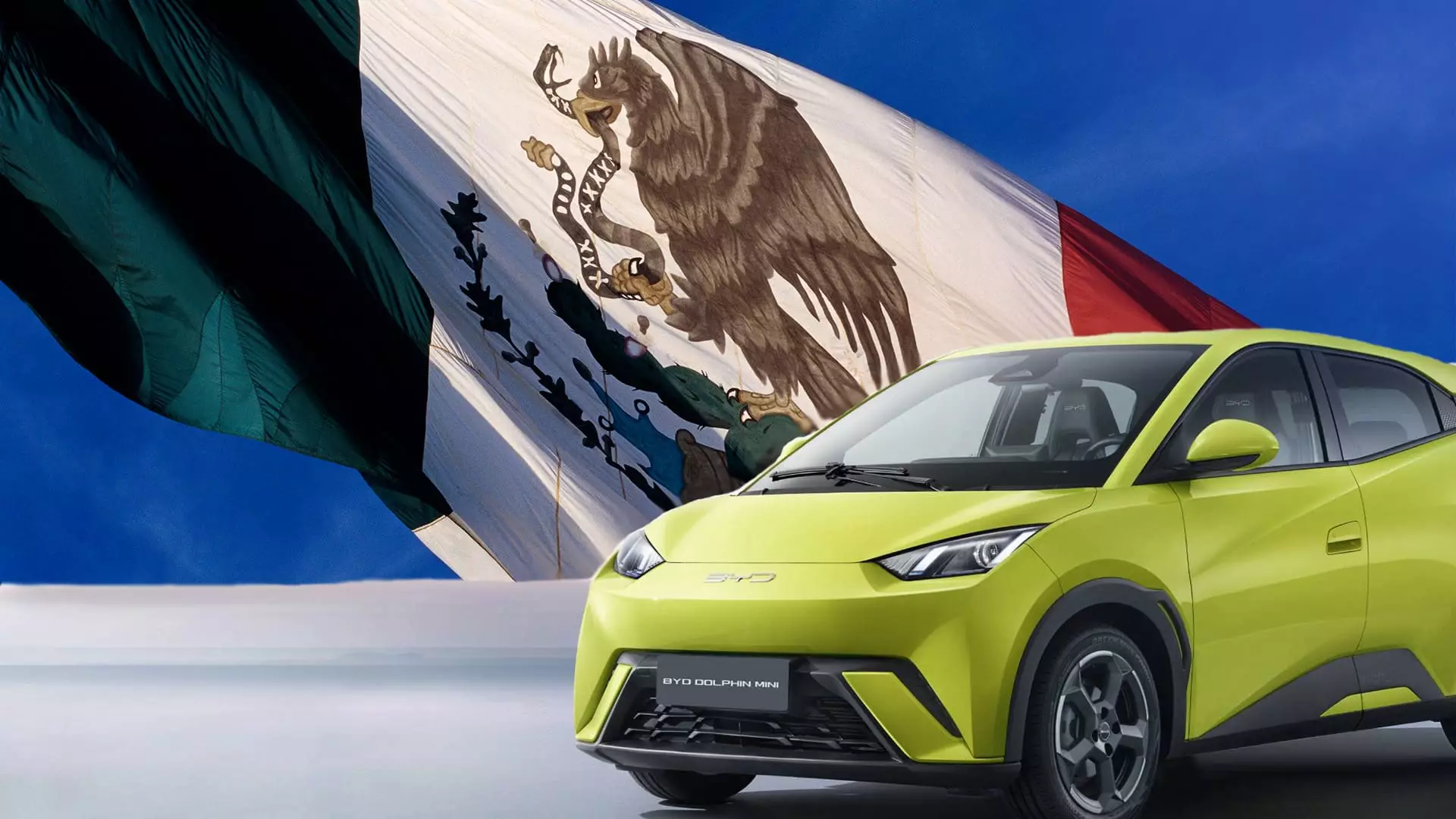Chinese electric vehicle manufacturers have been finding ways to expand their market reach beyond their homeland. Mexico has become a prime target for Chinese EVs, with affordable price tags winning over even skeptical customers. For instance, Tesla rival BYD sells its Dolphin Mini in Mexico for around $21,300, a much lower price compared to the cheapest Tesla model. The aggressive marketing strategies and reasonable pricing have paved the way for Chinese automakers to establish a solid presence in Mexico.
Some Chinese EV companies, including BYD, are considering setting up manufacturing plants in various Mexican states like Durango, Jalisco, and Nuevo Leon. The potential foreign investment in Mexico could lead to the creation of thousands of jobs, providing an economic boost to the country. However, US officials express concerns that this expansion into Mexico could be a strategic move by Chinese automakers to bypass trade restrictions and ultimately enter the American market.
The United States-Mexico-Canada Agreement (USMCA) has made Mexico an attractive production platform due to the free trade access it provides to the American market. Under the agreement, goods manufactured in Canada or Mexico with locally sourced materials can be exported to the US with minimal tariffs. This loophole has raised alarms among US lawmakers and auto companies, fearing that Chinese EV makers could undercut American automakers by operating in Mexico at lower costs.
The announcement of a 100% tariff on Chinese EVs by President Joe Biden reflects the US government’s efforts to protect its emerging EV industry. The infancy of the American EV market makes it vulnerable to competition from well-established Chinese manufacturers. The fear of Chinese EVs flooding the US market at lower prices poses a significant threat to American automakers, prompting the need for protective measures to safeguard domestic industries.
While Mexico stands to benefit from Chinese investment and economic growth, the pressure from the US adds a layer of complexity to its relationship with both countries. Balancing the need to maintain a crucial partnership with America while welcoming foreign investment from China requires strategic decision-making and diplomacy. Mexico finds itself in a challenging position of navigating between two major global economic players while safeguarding its own interests.
The influx of Chinese electric vehicles into Mexico raises concerns about the potential backdoor entry into the lucrative US market. The competitive pricing and aggressive marketing strategies employed by Chinese EV makers in Mexico pose a direct threat to American automakers. As the automotive industry undergoes rapid transformation towards electric vehicles, the delicate balance between promoting innovation and protecting domestic industries becomes increasingly essential. Mexico’s role as a manufacturing hub for Chinese EVs highlights the complex interplay between trade policies, economic interests, and global competition in the evolving automotive landscape.


Leave a Reply